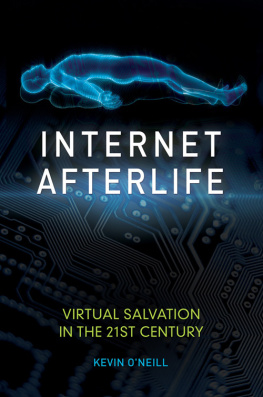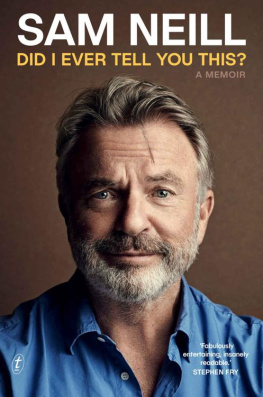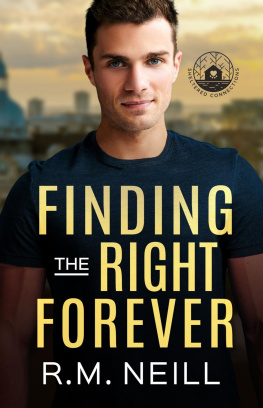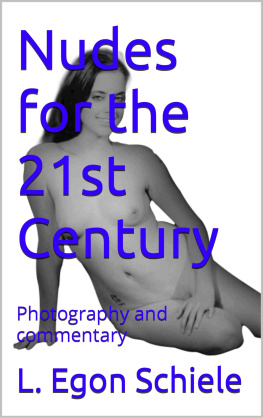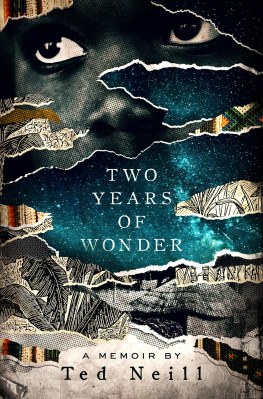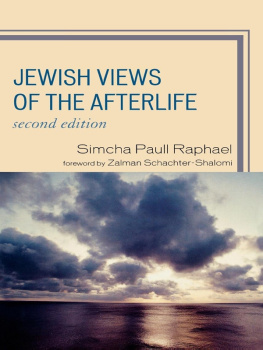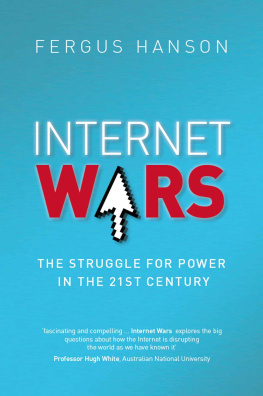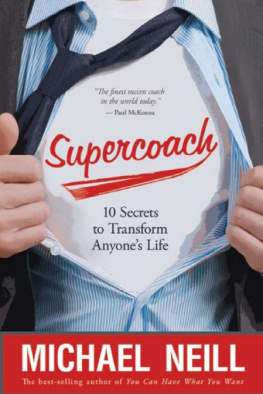O’Neill - Internet Afterlife: Virtual Salvation in the 21st Century
Here you can read online O’Neill - Internet Afterlife: Virtual Salvation in the 21st Century full text of the book (entire story) in english for free. Download pdf and epub, get meaning, cover and reviews about this ebook. year: 0, publisher: ABC-CLIO, LLC, genre: Romance novel. Description of the work, (preface) as well as reviews are available. Best literature library LitArk.com created for fans of good reading and offers a wide selection of genres:
Romance novel
Science fiction
Adventure
Detective
Science
History
Home and family
Prose
Art
Politics
Computer
Non-fiction
Religion
Business
Children
Humor
Choose a favorite category and find really read worthwhile books. Enjoy immersion in the world of imagination, feel the emotions of the characters or learn something new for yourself, make an fascinating discovery.
- Book:Internet Afterlife: Virtual Salvation in the 21st Century
- Author:
- Publisher:ABC-CLIO, LLC
- Genre:
- Year:0
- Rating:4 / 5
- Favourites:Add to favourites
- Your mark:
- 80
- 1
- 2
- 3
- 4
- 5
Internet Afterlife: Virtual Salvation in the 21st Century: summary, description and annotation
We offer to read an annotation, description, summary or preface (depends on what the author of the book "Internet Afterlife: Virtual Salvation in the 21st Century" wrote himself). If you haven't found the necessary information about the book — write in the comments, we will try to find it.
O’Neill: author's other books
Who wrote Internet Afterlife: Virtual Salvation in the 21st Century? Find out the surname, the name of the author of the book and a list of all author's works by series.
Internet Afterlife: Virtual Salvation in the 21st Century — read online for free the complete book (whole text) full work
Below is the text of the book, divided by pages. System saving the place of the last page read, allows you to conveniently read the book "Internet Afterlife: Virtual Salvation in the 21st Century" online for free, without having to search again every time where you left off. Put a bookmark, and you can go to the page where you finished reading at any time.
Font size:
Interval:
Bookmark:


Copyright 2016 by Kevin ONeill
All rights reserved. No part of this publication may be reproduced, stored in a retrieval system, or transmitted, in any form or by any means, electronic, mechanical, photocopying, recording, or otherwise, except for the inclusion of brief quotations in a review, without prior permission in writing from the publisher.
Library of Congress Cataloging-in-Publication Data
Names: ONeill, Kevin, 1941- author.
Title: Internet afterlife : virtual salvation in the 21st century / Kevin ONeill.
Description: Santa Barbara, California : Praeger, an imprint of ABC-CLIO, LLC, [2016] | Includes bibliographical references and index.
Identifiers: LCCN 2016016192 | ISBN 9781440837968 (acid-free paper) | ISBN 9781440837975 (EISBN)
Subjects: LCSH: Death. | Future life. | Internet. | World Wide Web. | Information technology. | Theological anthropology.
Classification: LCC BL504 .O54 2016 | DDC 306.9dc23 LC record available at https://lccn.loc.gov/2016016192
ISBN: 978-1-4408-3796-8
EISBN: 978-1-4408-3797-5
20 19 18 17 16 1 2 3 4 5
This book is also available as an eBook.
Praeger
An Imprint of ABC-CLIO, LLC
ABC-CLIO, LLC
130 Cremona Drive, P.O. Box 1911
Santa Barbara, California 93116-1911
www.abc-clio.com
This book is printed on acid-free paper 
Manufactured in the United States of America
This book belongs to my beloved wife and life companion, Dorothy, in more ways than I can possibly say. The time and intelligence that she voluntarilyand so generouslylavished on this project continue to amaze me, and I will be forever in her debt.
I also dedicate this book to all the extraordinary rescue animals whose love and antics have made our journey so much richer and so filled with joy and laughter. I wish they all lived longer, so that we could love them more.
Contents
Preface
When philosophy paints its grey on grey, then has a shape of life grown old. The owl of Minerva appears only at the gathering of the dusk.
Georg Wilhelm Hegel
Lectures on the Philosophy of History
This book completes a journey I have been on for the past 23 years, in that trackless and ambiguous borderland between the living and the dead that Jacques Derridathe most serious philosopher of death since Heideggersketches out in his meditation on death, Aporias. What you read here recaptures the final steps of my journey, when I departed this world, without dying, and went to visit the new homes of the dead on the Internet and in cyberspace. There, in the Cloud, on websites, and in virtual realities, I found many things. I visited online cemeteries and virtual vaults. I relived 9/11 and Sandy Hook and Katrina. I was haunted by ghosts on Facebook and got tweets from the dead on Twitter. I went to websites that invited me to create an online replica of myself that my family could visit when I died.
Finally, at the end of my journey, I found people who told me that in a few years death itself would die and everyone would become an immortal presencenot in Heaven or Hell, but in the Cloud. The world would be populated by android robots and holograms in which the dead would live on. Computer and smartphone screens would teem with even more of the dead, turned into avatar copies whose software would capture each dead persons subjectivity.
In this book you will meet the dead, all these ghosts, these robots and avatars, and when you have finished you will wonder whether Hegel was absolutely right. Are we living at the end of a phase of history in which human beings actually died? Are we at the dawning of a new world in which the dead will live among us in digital form, and when theyand weand the entire universe will morph into one enormous simulation? Will the virtual absorb the real? Will bodies disappear? Will time and space come to mean nothing? Welcome to the journey to Internet afterlife.
Acknowledgments
I want to thank my former student Eli Kramer, whose invitation to speak to the philosophy graduate students at Southern Illinois University in 2013 provoked me to write the initial version of the paper on which this book is based. I also acknowledge and thank Catherine Lafuente of Praeger-ABC-CLIO for showing interest in my project and for encouraging me to prepare my initial book proposal for submission to Praeger. I would also wish to acknowledge the assistance of Lorraine Rhodes of the Terasem Foundation for guiding me through the development of my first virtual presentation at a 2015 Terasem conference on Teilhard de Chardin. Lorraine guided me through the steps necessary to become an online avataran experience that changed my perspective completely.
The work I did preparing for the Summer Alumni Seminar on death in 2013, for the Johnston Center at the University of Redlands, gave me a sustained focus on the topic of death that led me back into investigating digital immortality. The experience of connecting the theme of death to its representation in visual culturewhich I did in preparing my keynote address to the national ADEC conference in 2013also helped provoke my interest in death on the screen.
Finally, and most importantly, I want to acknowledge the invaluable editorial assistance provided by Michael Wilt of Tucker Seven Editorial Services. His meticulous review and revision turned my work into a genuine manuscript. But Michael might never have gotten to help had it not been for the urgings and tireless editorial and emotional support provided by my spouse and life partner, Dorothy Clark. Her kindness and patience, as well as her uncompromising dedication to making this the best manuscript possible, were what made this book a reality.
I also thank the many students, friends, and colleagues who have endured my endless enthusiasm for discussing the somber topic of death. Your suggestions, ideas, and patience have all mattered.
List of Abbreviations
AI: | artificial intelligence |
CGI: | computer-generated imagery |
CPU: | central processing unit |
DARPA: | Defense Advanced Research Project Agency |
DNR: | do not resuscitate (end-of-life protocol) |
ICT: | Institute for Creative Technologies |
LOAR: | Law of Accelerating Returns |
NDE: | near-death experience |
PTSD: | post-traumatic stress disorder |
WBE: | Whole Brain Emulation |
Chapter 1
Introduction: Journeying into
New Worlds of the Dead
THE QUESTION AND THE JOURNEY
The question of what happens when we die has haunted both Western and Eastern cultures for as long as we have been able to keep records. Its nagging urgency tormented Gilgamesh at the dawn of history, and it haunts us just as deeply today as we push books about Heaven to the top of best-seller lists.
The mystery and sorrow of dying are encapsulated, existentially, in the moment of passing. At one moment the dying person is there, a functioning subject, a unique awareness. A moment later the person is gone and we are in the presence of a corpse. What went away? Where did it go? Did it go anywhere, or did it simply, and utterly, disappear?
Next pageFont size:
Interval:
Bookmark:
Similar books «Internet Afterlife: Virtual Salvation in the 21st Century»
Look at similar books to Internet Afterlife: Virtual Salvation in the 21st Century. We have selected literature similar in name and meaning in the hope of providing readers with more options to find new, interesting, not yet read works.
Discussion, reviews of the book Internet Afterlife: Virtual Salvation in the 21st Century and just readers' own opinions. Leave your comments, write what you think about the work, its meaning or the main characters. Specify what exactly you liked and what you didn't like, and why you think so.

